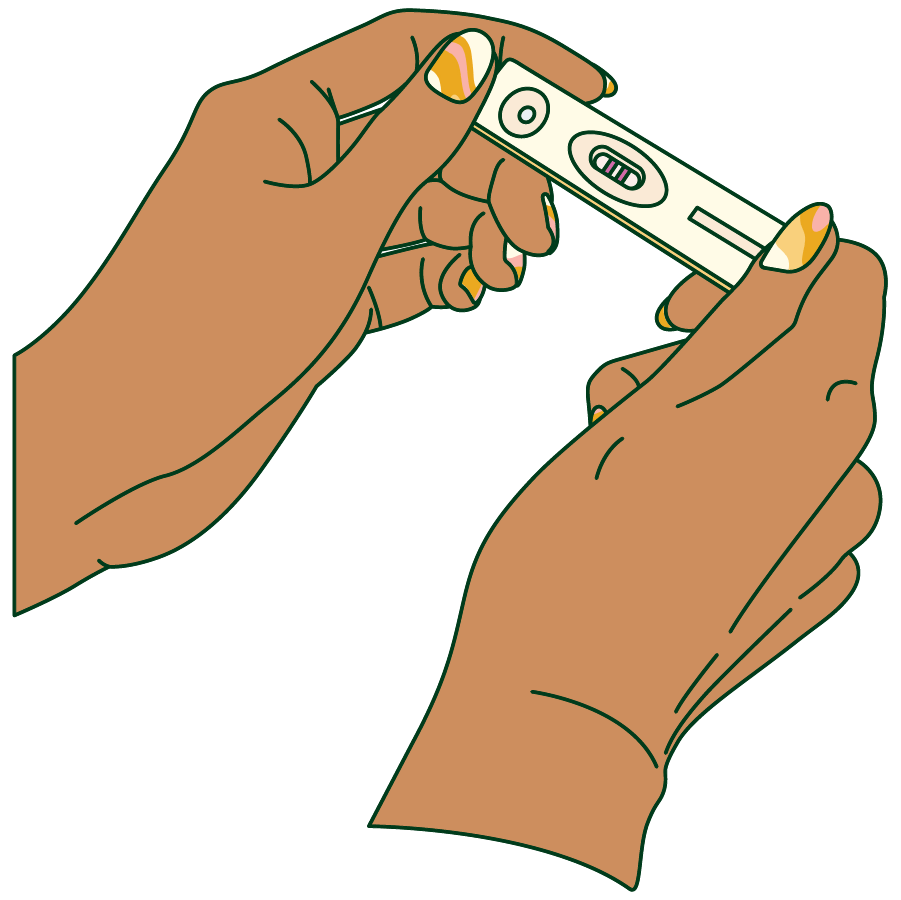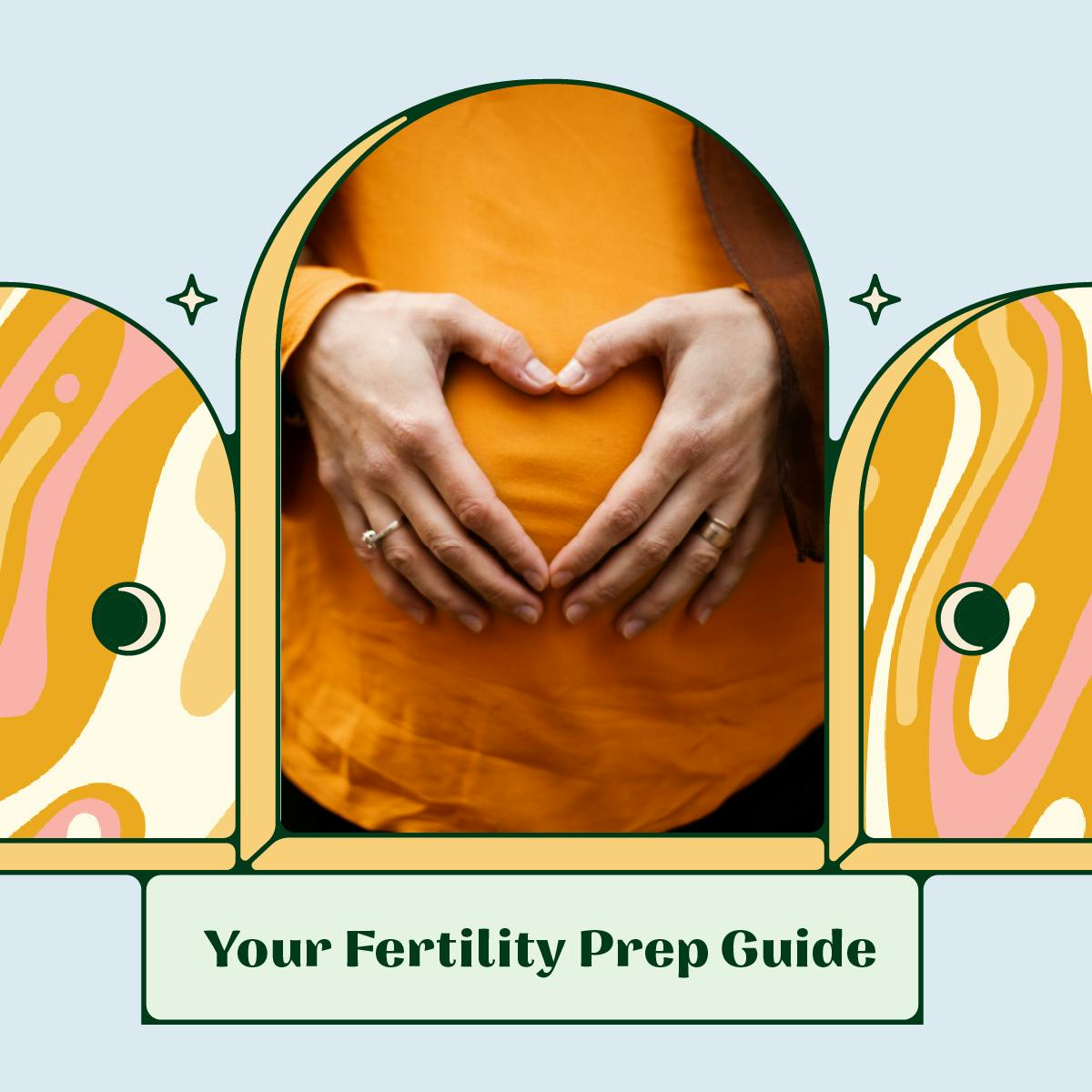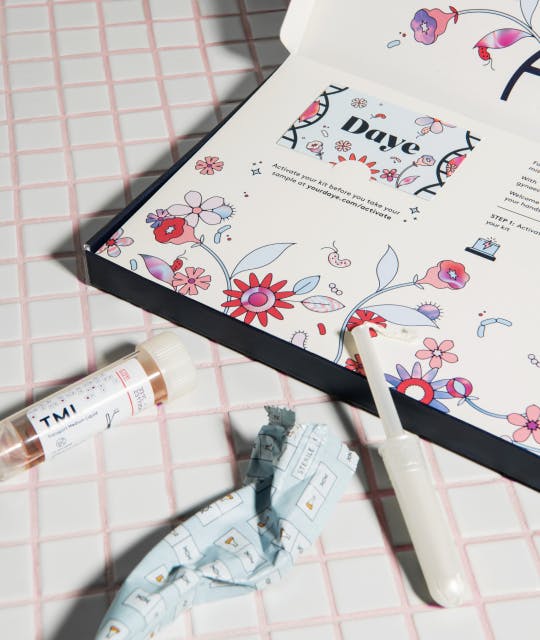Written by Eleanor Riches
Medically reviewed by Deborah Maguire (RN, BSc)
Illustrated by Maria Papazova
Thinking about starting a family? Whether you're actively trying to conceive or planning for the future, understanding your reproductive health is the first step toward parenthood. We've partnered with fertility experts at Apricity to create this comprehensive guide to help you navigate your path to pregnancy with confidence.
Understanding Your Fertility Journey
Your menstrual cycle is like a monthly report card for your reproductive health. A typical cycle can range from 21-35 days, but consistency is key. Tracking your cycle helps you understand your own reproductive health patterns and can reveal important insights about your fertility.
Getting to Know Your Cycle
Everyone's cycle is unique, but regular patterns suggest healthy hormone balance – essential for conception. If your cycle length varies significantly each month, it might signal underlying hormonal issues worth investigating.
"Hormonal imbalances can disrupt the delicate balance required for conception. Conditions like polycystic ovary syndrome (PCOS) or thyroid disorders can cause irregularities that make conception challenging," explains Deborah Maguire, Senior Fertility Nurse at Apricity.
Keep an eye out for these potential fertility warning signs:
- Irregular or missing periods
- Severe menstrual cramps
- Unusually heavy bleeding
- Excessive body hair growth
- Persistent acne
- Significant weight changes
Finding Your Fertile Window
Did you know conception is only possible during about 6 days each cycle? Once an egg is released, it's only viable for 24 hours. However, sperm can survive in the reproductive tract for up to 5 days, giving you a roughly 6-day fertility window each cycle.
Research shows that tracking ovulation improves the likelihood of getting pregnant, especially when paired with lifestyle changes to support your reproductive health. "It's about being in tune with your body's natural cycles," notes fertility nurse Deborah Maguire.
Here's how to identify your fertile window:
Basal Body Temperature (BBT) Method
- Take your temperature each morning before getting up
- Look for a 0.3-0.5°C rise after ovulation
- Three days of elevated temperature suggests ovulation occurred
Ovulation Predictor Kits
- Detect luteinizing hormone (LH) surge in urine
- Test 2-3 days before expected ovulation
- Positive result indicates ovulation within 24-36 hours
Cycle Tracking Apps
- Record your period dates and symptoms digitally
- Get predictions for your next cycle and fertile window
- The second half of your cycle (luteal phase) typically stays stable at around 14 days
- Count back 14 days from day 1 of your period to estimate ovulation
Cervical Mucus Changes
- Monitor mucus consistency throughout your cycle
- Fertile mucus resembles egg whites
- Track changes using a fertility app or journal
Although tracking methods often only tell us when ovulation has already occurred, they can help you build a clear picture of your fertile window across multiple cycles. Then, when trying to conceive, you can focus on being sexually active in the days leading up to ovulation (not just after).
Understanding Fertility Testing
Even if you’re not yet trying to get pregnant, fertility testing can provide valuable insights into your reproductive health. You can build a better understanding of key factors like:
- Your ovarian reserve (an indication as to whether your egg reserve is average for your age)
- Hormone levels (how your body is producing and responding to chemical messages)
- Any other potential early challenges that might affect conception
"Testing is a crucial first step for many couples and individuals," says fertility nurse Deborah Maguire. "It's about understanding your unique profile and identifying any possible issues early on."

What is AMH Testing?
Anti-Müllerian Hormone (AMH) testing is one of the most important fertility tests available. Think of AMH as a snapshot of your ovarian reserve – it tells you how many eggs you have left in your ovaries. This information is crucial for understanding your fertility potential and planning your journey to parenthood.
The more healthy eggs you have, the higher your chances of conceiving. However, ovarian reserve naturally declines with age, which is why AMH testing can be valuable even if you're not ready for pregnancy right now.
Daye community can take £10 off Apricity's AMH at-home test kit with code DAYE10. The test comes as part of their Fertility Insights Bundle, which includes a one-to-one consultation with a fertility nurse to help interpret your results and guide your next steps.
Making lifestyle changes for conception

Your overall health and lifestyle significantly impact your fertility. "Making lifestyle adjustments before trying to conceive can significantly improve your chances of success" advises fertility nurse Maguire. Here are her top recommendations:
Keep Track
Monitoring your menstrual cycle with an app or calendar is a great place to start. Getting to know your menstrual patterns can help you understand your fertile window. Any irregularities could help alert you to potential issues.
Nutrition for Fertility
While everybody is different, certain nutrients are essential for healthy hormone regulation:
- Vitamin D
- Folic acid
- Omega-3s
- Iron
- B vitamins
Research suggests that adopting a Mediterranean diet may support better fertility and pregnancy outcomes. If you have a specific condition such as PCOS or endometriosis, Deborah Maguire recommends getting personalized professional nutrition guidance.

Practice Self-Care
Stress can impact how our hormones function, and while we can't always prevent stressful situations, we can help our bodies recover from stress. Fertility nurse Deborah Maguire suggests:
- Prioritize sleep to support hormone health
- Practice regular, moderate exercise to build stress resilience
- Adjust exercise to your menstrual cycle phase and symptoms
- Try mindfulness activities like yoga, meditation, and breathing exercises to promote stress reduction and support optimal hormone function
The Vaginal Health Connection
Your vaginal health plays a crucial role in fertility that's often overlooked. Here's why it matters:
- Your vaginal microbiome creates the perfect environment for sperm survival while protecting against infections.
- Disruptions in this delicate balance can lead to infections like thrush and bacterial vaginosis (BV).
- These infections can cause long-term damage to your vaginal microbiome, making it more difficult for sperm to survive.
Regular screening with Daye's Diagnostic Tampon can help you monitor your vaginal health from home, checking for infections, common STIs and HPV that might impact your fertility.
Taking the Next Step

Proactive fertility care is your most powerful tool when preparing for parenthood. Through our partnership with Apricity, you can access premium at-home fertility testing and expert guidance wherever you are in your fertility journey.
Not ready for pregnancy? No pressure. Consider fertility preservation options like egg freezing – Apricity's experts can help you understand your choices.
Ready to learn more about your fertility? Take advantage of our special partnership discount on Apricity's AMH Online Diagnostics Test using code DAYE10 and Daye's Diagnostic Tampon screening kit. Start your journey to parenthood with confidence, armed with knowledge about your body and reproductive health.
Relevant Products







